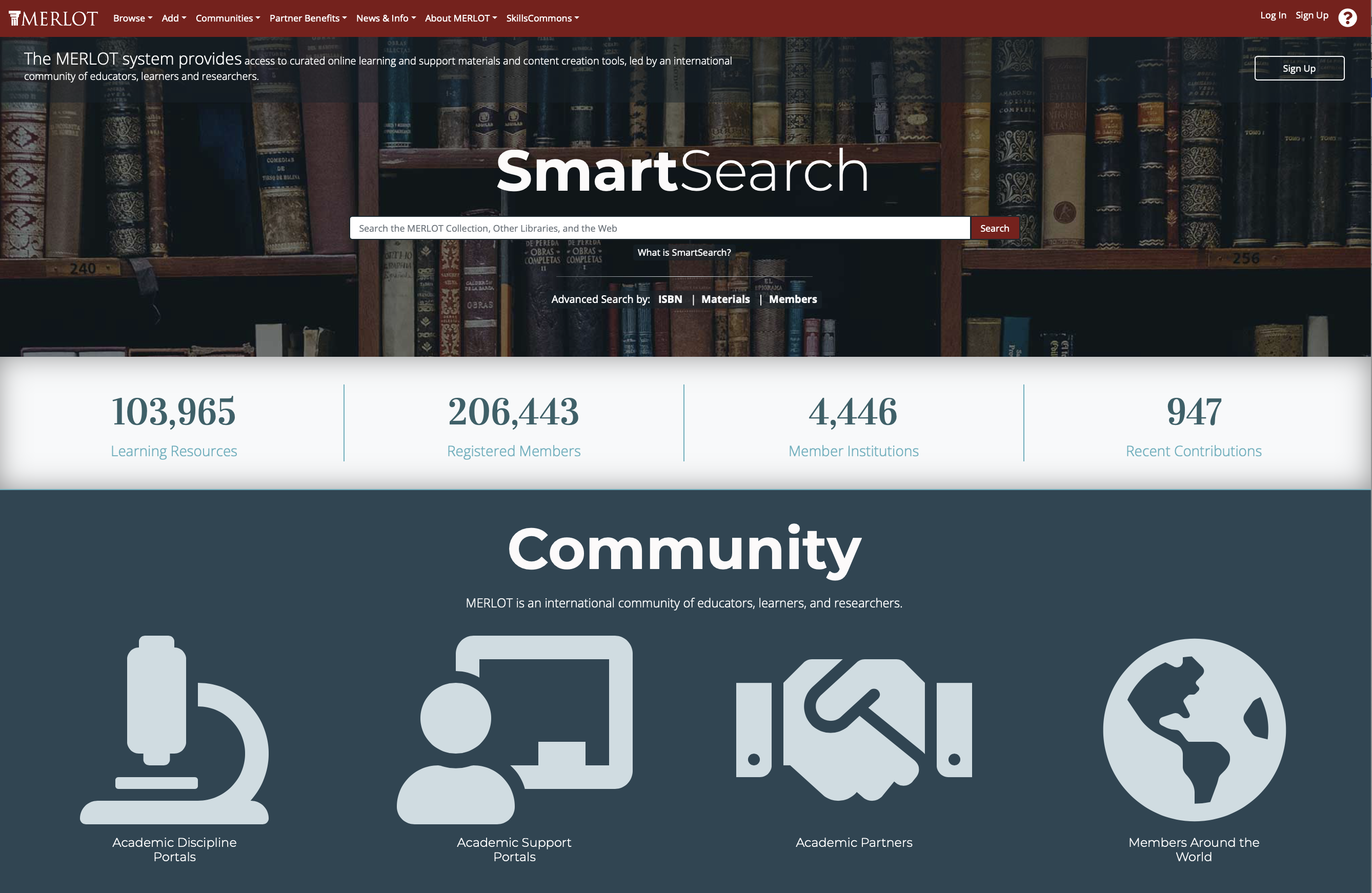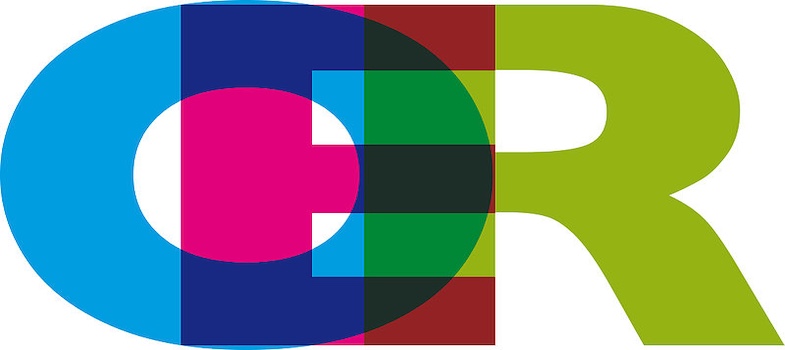2.1 What are OER?

Screenshot of the MERLOT platform home page, February 2024
In this part of the course you'll explore the topic of open educational resources, commonly referred to as 'OER'.
Definitions
OER can be defined as ‘educational materials made freely and legally available on the Internet for anyone to reuse, revise, remix and redistribute’ (The William and Flora Hewlett Foundation, 2013, p. 4). UNESCO (2019) give a slightly more detailed definition of OER, removing the emphasis on their being online and defining them as 'learning, teaching and research materials in any format and medium that reside in the public domain or are under copyright that have been released under an open license (Creative Commons), that permit no-cost access, re-use, re-purpose, adaptation and redistribution by others'. In this course you'll explore these definitions in detail.
OER have been part of the educational landscape since at least 2002, when the term 'Open Educational Resources' was officially adopted at an UNESCO meeting to describe open content for educational use. However, the roots of OER go back as far as 1997 and the creation of the MERLOT collection, which gives access to mostly free online course materials. MERLOT now features over 200,000 items.
In 1998, US open educator David Wiley coined the term 'open content,' referring to the practice of individuals creating content and sharing it with others for copying, re-sharing, or modification. This led to the open courseware movement, with universities sharing educational content online for free (Blessinger & Bliss 2016).
From the definitions above we can understand that OER have three main characteristics:
- They are created by people willing to share their resources with others.
- They feature an open license which allows others to access and use them, adapt them to meet the needs of their students, and re-share them so others can benefit from them. You’ll learn more about open licenses shortly.
- They are available in multiple formats and locations/platforms either online or in hard-copy format. For example, in places where internet access can be unreliable and/or expensive OER have been shared via SD cards and CDs. There are even openly licensed radio programmes.
